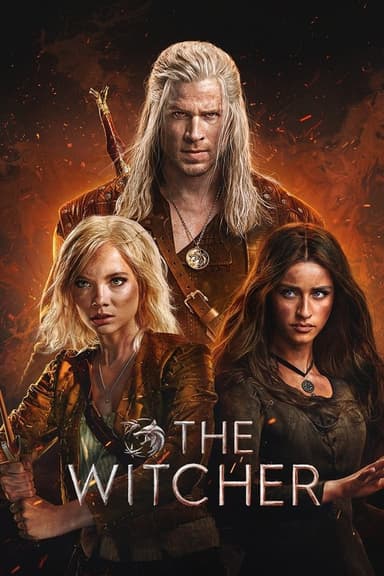
Leviathan
2025 • Action & Adventure, Animation, Sci-Fi & Fantasy • TV-14
Set in an alternate steampunk past, an Austrian fugitive prince and a Scottish airman in disguise embark on an unexpected quest to prevent a world war.
Why you should read the novel
If you crave a story where history is reimagined with wild creativity, the original Leviathan novel by Scott Westerfeld offers a masterpiece of alternate history and science fiction. Each page invites readers into a world brimming with intricate details—biologically engineered beasts, steam-powered machines, and a vibrant array of fascinating characters. The book’s original illustrations by Keith Thompson add another layer to the immersive experience, sparking your imagination in ways that a visual adaptation can only hint at.
Westerfeld’s world-building is meticulous, drawing readers into the complexities of World War I, re-cast as a struggle between the Darwinists' fabricated lifeforms and the Clankers' mechanical contraptions. The nuanced perspectives of Alek and Deryn provide a deeper connection with the era and its technologies, making the stakes and personal journeys profoundly engaging. The themes of identity, courage, and ingenuity resonate across every chapter, offering much more than surface-level adventure.
Unlike a TV adaptation, the novel gives readers the time and space to engage with its richly layered society and internal dilemmas. Subtle character motivations, witty dialogue, and emotional growth are explored with depth and attention to detail. Reading Leviathan allows you to savor the intricacies of Westerfeld’s world in your own imagination, making the experience truly personal and rewarding.
Adaptation differences
One of the main differences between the TV adaptation of Leviathan and the novel lies in the handling of character perspectives. The book alternates between the viewpoints of Alek and Deryn, immersing readers in their internal struggles and motivations. The series, however, tends to streamline their arcs and sometimes merges or omits key introspective moments to maintain pacing.
The adaptation also makes notable changes to the visual representation of technology and creatures. While the novel’s Darwinist beasts and Clanker machinery are vividly illustrated through prose and original art, the series often reinterprets their appearance to suit visual effects limitations or contemporary tastes, which can alter the audience’s perception of the world-building.
Certain plotlines and side characters receive less screen time or are left out entirely in the television version. For example, the subtle political intrigue and complex familial dynamics found in the book are sometimes simplified or replaced by action-driven sequences, shifting the narrative focus from intricate world politics to a more adventure-centric storyline.
Additionally, the novel’s slow build-up of suspense and gradual unveiling of its alternate history layers are condensed in the series. This can result in a faster-paced story, but often at the expense of the rich detail and thematic exploration that make Westerfeld’s writing so compelling. Thus, while the adaptation offers visual spectacle, it may not capture the full depth and charm of the source material.
Leviathan inspired from
Leviathan
by Scott Westerfeld










